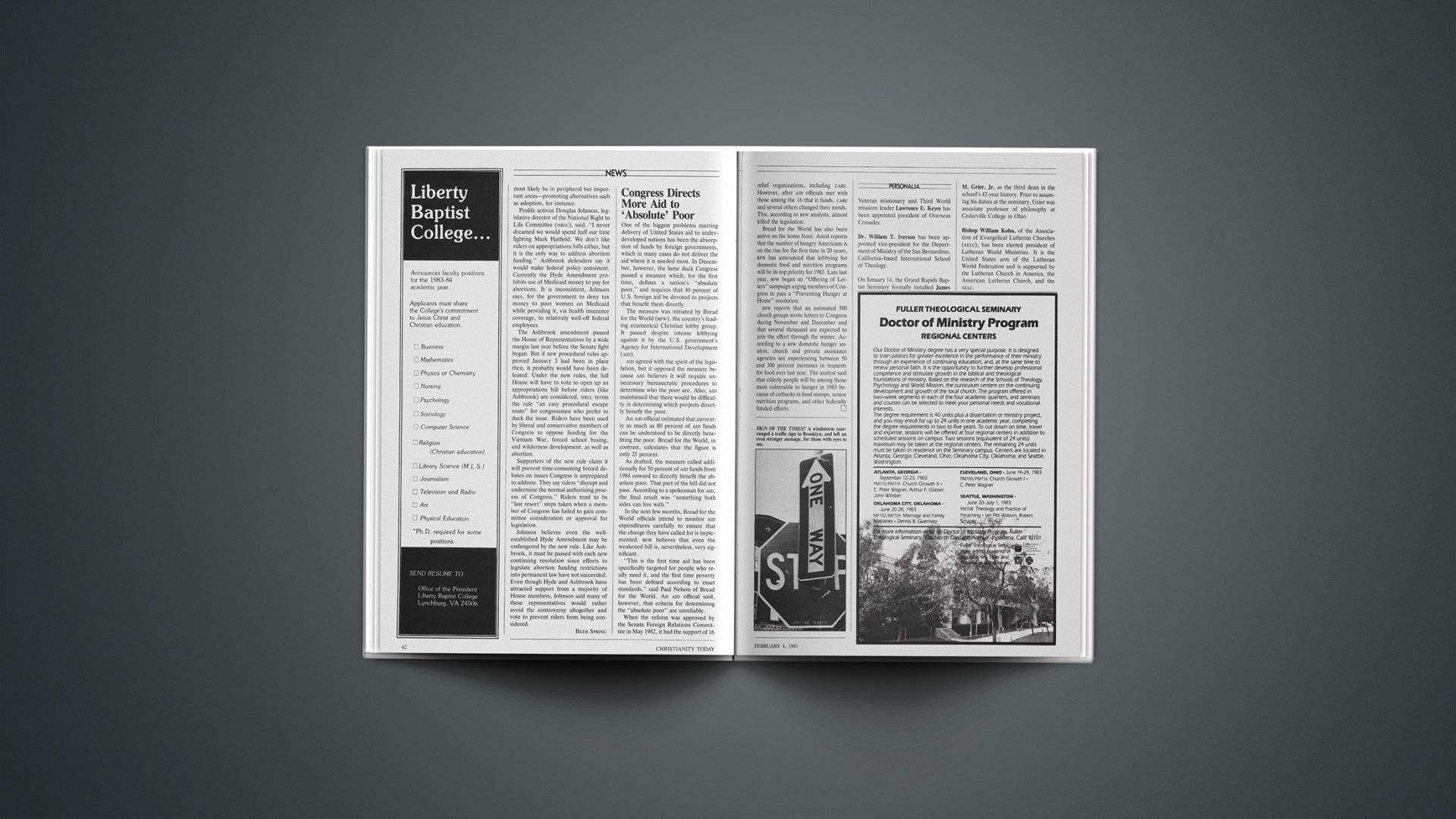One of the biggest problems marring delivery of United States aid to underdeveloped nations has been the absorption of funds by foreign governments, which in many cases do not deliver the aid where it is needed most. In December, however, the lame duck Congress passed a measure which, for the first time, defines a nation’s “absolute poor,” and requires that 40 percent of U.S. foreign aid be devoted to projects that benefit them directly.
The measure was initiated by Bread for the World (BFW), the country’s leading ecumenical Christian lobby group. It passed despite intense lobbying against it by the U.S. government’s Agency for International Development (AID).
AID agreed with the spirit of the legislation, but it opposed the measure because AID believes it will require unnecessary bureaucratic procedures to determine who the poor are. Also, AID maintained that there would be difficulty in determining which projects directly benefit the poor.
An AID official estimated that currently as much as 80 percent of AID funds can be understood to be directly benefiting the poor. Bread for the World, in contrast, calculates that the figure is only 25 percent.
As drafted, the measure called additionally for 50 percent of AID funds from 1984 onward to directly benefit the absolute poor. That part of the bill did not pass. According to a spokesman for AID, the final result was “something both sides can live with.”
In the next few months, Bread for the World officials intend to monitor AID expenditures carefully to ensure that the change they have called for is implemented. BFW believes that even the weakened bill is, nevertheless, very significant.
“This is the first time aid has been specifically targeted for people who really need it, and the first time poverty has been defined according to exact standards,” said Paul Nelson of Bread for the World. An AID official said, however, that criteria for determining the “absolute poor” are unreliable.
When the reform was approved by the Senate Foreign Relations Committee in May 1982, it had the support of 16 relief organizations, including CARE. However, after AID officials met with those among the 16 that it funds, CARE and several others changed their minds. This, according to BFW analysts, almost killed the legislation.
Bread for the World has also been active on the home front. Amid reports that the number of hungry Americans is on the rise for the first time in 20 years, BFW has announced that lobbying for domestic food and nutrition programs will be its top priority for 1983. Late last year, BFW began an “Offering of Letters” campaign urging members of Congress to pass a “Preventing Hunger at Home” resolution.
BFW reports that an estimated 500 church groups wrote letters to Congress during November and December and that several thousand are expected to join the effort through the winter. According to a BFW domestic hunger analyst, church and private assistance agencies are experiencing between 50 and 300 percent increases in requests for food over last year. The analyst said that elderly people will be among those most vulnerable to hunger in 1983 because of cutbacks in food stamps, senior nutrition programs, and other federally funded efforts.
Veteran missionary and Third World missions leader Lawrence E. Keyes has been appointed president of Overseas Crusades.
Dr. William T. Iverson has been appointed vice-president for the Department of Ministry of the San Bernardino, California-based International School of Theology.
On Januars 14, the Grand Rapids Baptist Seminary formally installed James M. Grier, Jr. as the third dean in the school’s 42-year history. Prior to assuming his duties at the seminary, Grier was associate professor of philosophy at Cedarville College in Ohio.
Bishop William Kohn, of the Association of Evangelical Lutheran Churches (AELC), has been elected president of Lutheran World Ministries. It is the United States arm of the Lutheran World Federation and is supported by the Lutheran Church in America, the American Lutheran Church, and the AELC.










